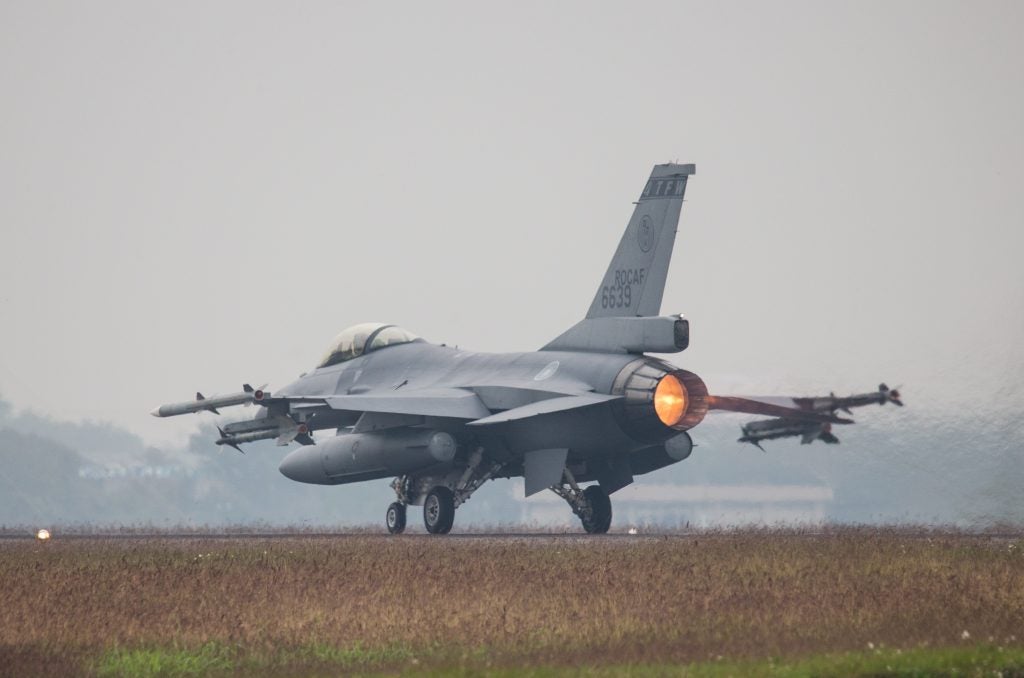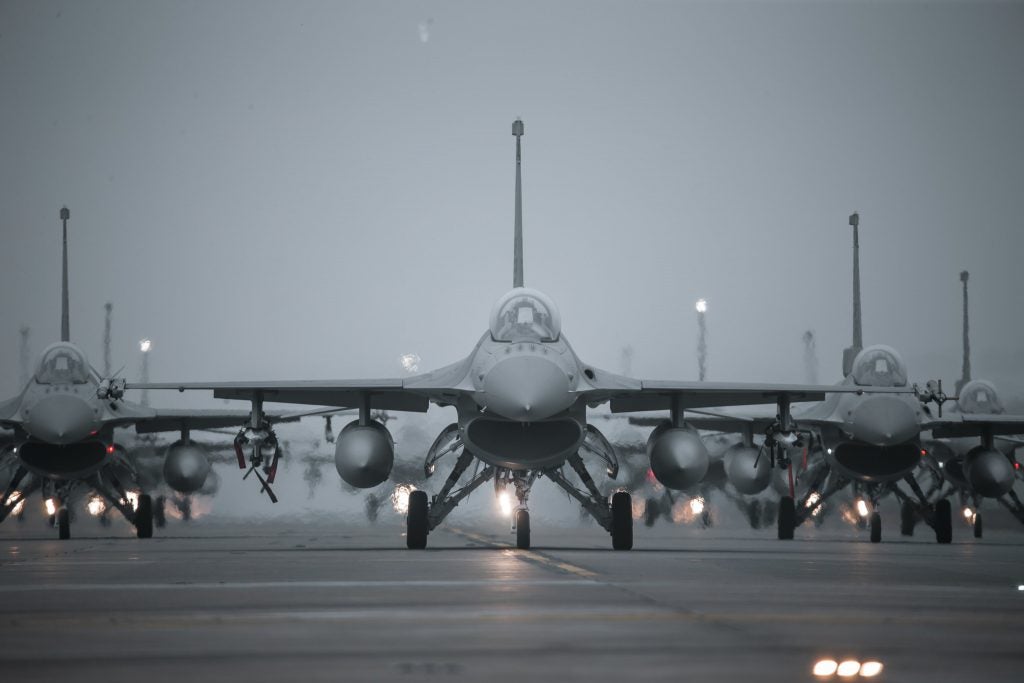Supply Chain Snarl Behind Year-Long Delay For Taiwan’s First New F-16Vs
Taiwan will be receiving the first of its new F-16Vs a year behind schedule, with the arrival of the first batch of one single-seat and one twin-seat F-16V delayed from this year’s fourth quarter to 2024’s third quarter.
In an appearance before the Legislative Yuan’s Foreign and National Defense Committee on 4 May, Defense Minister Chiu Kuo-cheng told lawmakers that supply chain issues caused by the COVID-19 pandemic had resulted in the delay, with Taipei notified of the delay the week before.
Despite the delay in delivery of the first two F-16Vs, Chiu said that all 66 F-16Vs could still be delivered by the end of 2026. The minister added that while no financial compensation would be made for the delay, the United States had promised to bring forward deliveries of spare parts and support accessories to compensate for the delay.
Lee Shih-Chiang, director of the Ministry of National Defense’s Department of Strategic Planning, told the committee that Washington had ordered a reorganization of F-16V manufacturer Lockheed Martin’s management of the program following the delay. According to Lee, the program is now led by a Lockheed Martin vice president, who is to make a monthly progress report to the Air Force.

The Taiwanese defense ministry says its first new F-16V has entered production at Lockheed Martin’s F-16V production facility in Greenville, South Carolina, but did not provide additional details on production progress. The 66 new F-16Vs will augment Taiwan’s ongoing efforts to locally upgrade its current F-16s to F-16V standard, with the first wing equipped with the upgraded F-16Vs declaring full operational capability in November 2021. Compared to the upgraded F-16Vs, the new build F-16Vs will come standard with conformal fuel tanks.
When contacted for comment by Overt Defense, a Lockheed Martin representative requested that inquiries be directed to the United States and Taiwanese governments.
The United States Air Force has since confirmed Chiu’s statement about supply chain disruptions causing the delay, with a spokesperson telling Defense One that “It will take time for industry to acclimate to the current industrial capacity challenges, which while rooted in disruptions during the COVID-19 pandemic, have since been exacerbated by increased global demand as well as lingering supply chain shortages”.

